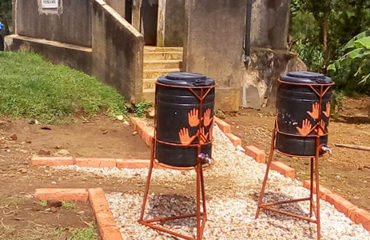 Disproportionate numbers of adults with chronic diseases, such as obesity, hypertension and lung disease, reduced their physical activity levels during the first weeks of the UK COVID-19 lockdown, according to a new study co-led led by the London School of Hygiene & Tropical Medicine (LSHTM),
Disproportionate numbers of adults with chronic diseases, such as obesity, hypertension and lung disease, reduced their physical activity levels during the first weeks of the UK COVID-19 lockdown, according to a new study co-led led by the London School of Hygiene & Tropical Medicine (LSHTM),
The research, conducted with UCL and the University of Bath, also found similar reduced levels of activity for people with disabilities and depression.
Published as a pre-print on medRxiv, the study uses data from a UK-wide online survey of more than 5,800 adults aged 20 and over, and reveals that while the majority (60%) of adults have maintained the same intensity of physical activity as they did pre-COVID-19, a quarter (25.4%) adopted lower intensity physical activity. This latter group included a bigger proportion of adults who have health conditions that heighten the risk of suffering from the most severe effects of COVID-19, should they contract the SARS-CoV2 virus.
Lead author of the study, Dr Nina Rogers (UCL Epidemiology & Public Health) said: “Low levels of physical activity put adults at increased risk of chronic diseases like obesity, cardiovascular disease and stroke which are also potential risk factors for more severe complications if someone develops COVID-19.
“It is concerning that in the mid to long term, multiple lockdowns might lead to prolonged periods of low physical activity which could increase the size of the population that is most vulnerable to severe complications from COVID-19.”
The study also found that not only people with medical conditions but also those who perceived themselves or others in their home to be at risk, had more frequently changed towards a more inactive lifestyle.
Senior author Dr Chrissy Roberts, Associate Professor at LSHTM said: “We believe that the trade-off between being protected from COVID-19 and the health detriments of reduced physical activity could place already vulnerable populations in a potential ‘no-win’ situation.
“When we’re talking about vulnerable people, it’s not just those who already have underlying health problems, but those who perceive themselves to be at risk too.
“We could well see seasonal cycles of COVID-19, as we do with flu. If that’s the case then we have to start thinking about protecting people from this COVID-19 epidemic, or the one that could come next year. If a person feels at risk now and reduces their physical activity in response, then this could set them on a course towards developing the same risk factors that would make them vulnerable to severe complications from COVID-19 in subsequent epidemic waves.”





